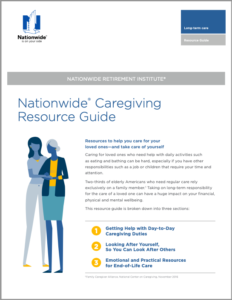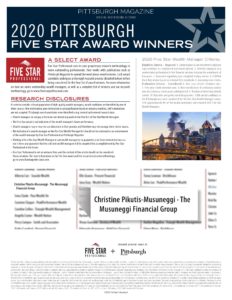My mother had an expression, “When God turns a Mom on, He never turns her off.” I believe sometimes she used that to explain her reason for why she thought it was appropriate for her to interfere in my life and tell me what to do, even after I was grown, married and had a child of my own. But it was also a reminder that she would always be there to help in anyway she could, if needed. I believe most parents have that innate desire even when their kids are adults.
Sometimes that help to the adult child comes in the form of babysitting for grandchildren, or even pets, as housework, party planning, home repairs, food shopping, cooking, or even health care. But many times, it comes in the form of straight out cash.
The Bank of Mom and Dad
 When this happens, the money is often used for home improvements, tuition, down payments on a house, car payments, vacations, financing a business venture, paying legal fees for a divorce, or even helping the child get out of debt. In more serious situations, it is used for day to day living expenses for the adult child.
When this happens, the money is often used for home improvements, tuition, down payments on a house, car payments, vacations, financing a business venture, paying legal fees for a divorce, or even helping the child get out of debt. In more serious situations, it is used for day to day living expenses for the adult child.
And when this occurs, I cannot imagine any child who is not appreciative and grateful. But………
As the parents age, retire; as income sources change or aging brings on health risks or the need to change housing options, several questions need to be addressed before the parent continues to be the “bank.”
What Comes Next?
Does the child have the expectations that the parent will continue to be a source of funds?
Does the child truly understand the parents’ financial situation? Do they have a false sense of what the parents have? Do they understand the impact on the parents’ financial situation as they are on a “fixed” income?
Can the child be financially independent without the help of the parent?
 Have the parents made financial commitments to the child that they do not really have the financial resources to fulfill? Could this cause the parent to go into debt? To reduce their standard of living? Or jeopardize the parent’s future financial independence?
Have the parents made financial commitments to the child that they do not really have the financial resources to fulfill? Could this cause the parent to go into debt? To reduce their standard of living? Or jeopardize the parent’s future financial independence?
Who will be responsible for the parent’s income needs if the parents run out of money, need Long Term Care, or help staying in their home?
It Starts with Communication
One of the roles of a parent is to protect the child from danger. Giving a child unrealistic financial expectations, allows you to create a potentially serious financial situation for you and your child. Over the years in our practice we have seen parents sacrifice their security for the security of a child. One of our best ways of making sure parent and child are on the same page is through our Family Meeting program. We meet with parents and children and address these issues. After these meetings, those parents who were able to share their excess funds with their children where happy that they were able to say “yes” and still live comfortably. For those who were thinking of sharing money they could not really afford, were then able to explain to the children why they just had to say “no”. If the transaction is good for all involved, just say “yes”. If not….well….just say “no”.
It is all part of the job of that parent that God turned on. There just might be a time to turn them off.

 So far for the year 2020 we have been given so many challenges; but at the same time some opportunities. Although many of us have been taken away from jobs, friends and family, dining out, activities, events and sports; for some we have been given the gift of time while we are under lockdown, quarantine, or what I like to call “house arrest”.
So far for the year 2020 we have been given so many challenges; but at the same time some opportunities. Although many of us have been taken away from jobs, friends and family, dining out, activities, events and sports; for some we have been given the gift of time while we are under lockdown, quarantine, or what I like to call “house arrest”. By Mary Grace Musuneggi
By Mary Grace Musuneggi
 As our country begins to open after a long, planned shutdown helping to deter the spread of the Coronavirus, I am echoing the call of my friends and business associates who cannot wait to leave their homes. Many are heading to the hair salon and then planning a vacation. One friend admitted that she was planning to stop to get her hair cut on her way to the airport. When I inquired as to where she was planning on going, she replied “anywhere”.
As our country begins to open after a long, planned shutdown helping to deter the spread of the Coronavirus, I am echoing the call of my friends and business associates who cannot wait to leave their homes. Many are heading to the hair salon and then planning a vacation. One friend admitted that she was planning to stop to get her hair cut on her way to the airport. When I inquired as to where she was planning on going, she replied “anywhere”. Information provided by
Information provided by  When this happens, the money is often used for home improvements, tuition, down payments on a house, car payments, vacations, financing a business venture, paying legal fees for a divorce, or even helping the child get out of debt. In more serious situations, it is used for day to day living expenses for the adult child.
When this happens, the money is often used for home improvements, tuition, down payments on a house, car payments, vacations, financing a business venture, paying legal fees for a divorce, or even helping the child get out of debt. In more serious situations, it is used for day to day living expenses for the adult child. Have the parents made financial commitments to the child that they do not really have the financial resources to fulfill? Could this cause the parent to go into debt? To reduce their standard of living? Or jeopardize the parent’s future financial independence?
Have the parents made financial commitments to the child that they do not really have the financial resources to fulfill? Could this cause the parent to go into debt? To reduce their standard of living? Or jeopardize the parent’s future financial independence?